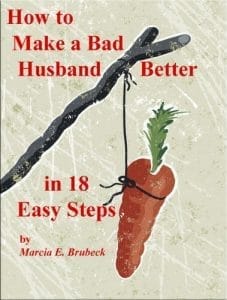
Offsetting the Legacy of Adversity
Children are like recent immigrants. They arrive with little or no command of the language or knowledge of the local customs and depend on the natives for survival. As they learn to fend for themselves, they rely heavily on their senses and their powers of observation.
Hardships endured early in life have predictable consequences for people’s outlook and behavior. In my experience, an understanding of how youngsters view the world can help adults mitigate the damage. I am speaking here not just about sound childrearing practices but also about the need for parents to come to terms with their own misfortunes in childhood.
Some common forms of adversity appear below. When an adult reports one or more of these, I know a lot about the affected child right away.
Socioeconomic hardship. Violence-plagued urban neighborhoods have many potentially harmful features. People may behave unpredictably, becoming enraged for no reason that is evident to the youngster watching. People get hurt. Loud and erratic noises create an atmosphere of danger and uncertainty.
Financial issues may contribute to conflict or discomfort: not enough heat, food, clothing, or other supplies. Homes may be unsafe. Child care may be provided largely by a television set. Junk food is cheaper than healthy food. Medical and dental care may be an issue.
Adults living at or below the poverty level may be laboring under terrible stress that makes it hard to spend much time with their offspring. Children exposed to these stressors become anxious and vigilant. They don’t feel safe. Physical agitation and problems with frustration tolerance and impulse control are common.
As with parents everywhere, what grownups experienced during their own childhoods will determine what inner resources are available to them as they raise their own families. People with little formal education often practice harsher forms of discipline when they become parents.
Substance Abuse. Substance abuse contributes to chaos in households because many adults behave unpredictably when under the influence. Anger may become associated with violence or aggression in a child’s mind. Youngsters may feel ignored by grownups who are often drunk or stoned. To counteract the damage, kids may try to organize the household, to make warring adults reconcile, or to get everyone to lighten up.
Seeing drugs and alcohol used to offset fear, sadness, loss, and hardship, kids will infer that substances help people cope. To protect themselves, children will avoid expressing their feelings. Youngsters learn how to deal with the difficult parts of life by seeing how the grownups behave.
Domestic violence. In this area too adults teach their children how to deal with trouble. When kids see their parents hurting each other, they learn that anger can be physically dangerous. They also learn that violence is possible when people love each other.
Since we all as adults recreate some dynamics from our families of origin, there is a risk that someone exposed to domestic violence as a child will seek a potentially violent partner down the road. People sexually molested in childhood also often court sexually abusive individuals later in life. We learn boundaries, or a lack of them, in our families of origin.
Adoption. Adoption from the child’s point of view amounts to one of the biggest possible losses at or near the start of life. Children do not enter the world with developed intellectual abilities, and they are egocentric. They see parents as gods, not as humans with their own issues.
It would be terrifying to a child to think that parents randomly abandon their offspring. Instead, the adopted child will suspect that something he or she did prompted the biological parents to leave. The internalized message is: if I had been a better child, my mother and father would have kept me. Since this is a painful if irrational belief, it often gets buried as the child develops and may come as a shock when it is uncovered later, in adulthood. The apparent evidence may be lifelong poor self-esteem.
Illness in the family. When someone in the family is gravely ill, the rest of the family tries to compensate for the problem. The illness may be alcoholism in a parent, serious drug abuse by a teenager, someone’s mental illness, or a physical condition that requires daily accommodation. It may also be a disaster from which the family has never recovered. As ever, children seek to adapt.
The hazards are several. If one afflicted child receives a disproportionate share of parents’ attention, siblings may feel less important. In the face of another family member’s suffering, they may feel guilty for being well. They may grow up believing that taking care of others is the most important task in life. When such children morph into compulsive rescuers or codependents, it may be hard for them to focus on their own welfare and to respect others’ ability to take care of themselves.
Loss of a parent. A child can lose a parent not just through adoption but also through death and abandonment—for example, when the unmarried parents do not remain together. Not only does abandonment predispose the child to feel inadequate but the missing parent’s failure to maintain a tie to his or her offspring will fuel anger, resentment, and hurt and will interfere with the child’s natural development.
A girl needs to feel attractive in the eyes of her father, and she will derive much of her sense of self from her mother. A boy who lost his mother may feel at a disadvantage with women. If his father did not participate in raising him, the boy may well feel uncomfortable fathering his own son later on and may avoid his offspring altogether for this reason.
Death is a form of abandonment from the child’s standpoint. It doesn’t matter that the parent did not choose to die. Anger, one common response, often masks fear and helplessness in the face of other terrible losses as well.
Substance abuse can also mean loss. The parent may disappear either figuratively, into a rage or a stupor, or literally, when child protective services step in. In such cases the young child wonders why the parent didn’t care enough about him or her to fix the addiction issue. Children who have not had healthy, emotionally available parents are at risk for pursuing adult partners who are similarly unavailable.
Other conditions. In so many ways our families of origin temper our adult lives. Our parents determine how we love others. They also shape the way we feel about ourselves. To some extent our families foreshadow the trajectory of our lives. A child whose parents divorced when he was eight will be at risk for marital discord when his offspring turns eight. In addition, parents imbue their children with attitudes and values that may never be made explicit.
Many years ago a man came to see me, well-to-do, with a wife and children, who had had extramarital affairs over the years. Some of the women had become pregnant and had gotten abortions. The most recent flirtation had also led to a pregnancy, but the woman in this case insisted on keeping the child.
In time, the man’s wife learned of the affair and the pregnancy. Devastated, she confronted him, discovered that he had been unfaithful on other occasions, and eventually approached his mother. From her mother-in-law the distraught wife learned that the man’s father had also had affairs. Further investigation showed that men in this particular family had been cheating on their wives for generations. No one had ever talked about the problem, however. Somehow it was handed down from father to son without comment.
You are probably wondering what I do when I hear about these problems in my adult clients’ life stories. No one can erase or change the past, of course. It is possible, however, for people to recognize the warning signs that they are about to repeat some unfortunate aspect of their history. They can then correct course.
People can also learn to anticipate and alter unproductive ways of thinking and acting. And they can learn to recognize emotionally available partners and to take care of themselves in a relationship. A first taste of success usually whets the appetite for more.
Parents seeking to raise children equipped to handle adversity could heed a number of basic principles.
Make daily life orderly and predictable
Feed the child’s strengths
Offer love, encouragement, and guidance
Praise the deed, not the child’s character
Allow the child to take age-appropriate risks
Listen nonjudgmentally
Encourage your child to voice feelings and to notice those of others
Model the values you want your child to adopt





